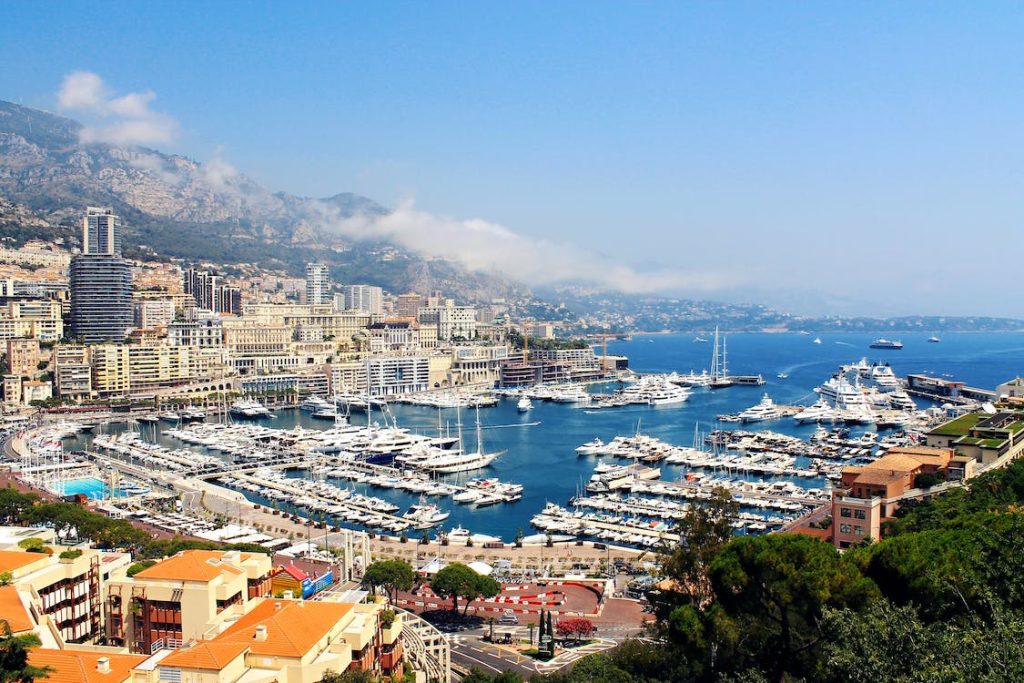Country Details
Monaco is a small sovereign city-state located on the French Riviera in Western Europe. Here are five important facts about Monaco:
1. Size and Population: Monaco is one of the smallest countries in the world, with an area of just 2.02 square kilometers (0.78 square miles). Despite its small size, it is densely populated and has a population of approximately 39,000 people. Monaco is known for its high standard of living and is home to many wealthy individuals and celebrities.
2. Monarchy and Governance: Monaco is a constitutional monarchy, with Prince Albert II currently serving as the head of state. The country has a political system where the prince holds significant powers, but there is also a parliamentary government with a National Council. Monaco is known for its political stability and effective governance.
3. Tax Haven: Monaco is famous for its status as a tax haven. The country has no income tax for individuals, making it an attractive destination for high-net-worth individuals and businesses. This tax advantage has contributed to Monaco's reputation as a hub for wealth and luxury.
4. Tourism and Luxury: Monaco is a popular tourist destination, known for its glamorous lifestyle and luxury. It is home to iconic landmarks such as the Monte Carlo Casino, the Prince's Palace, and the prestigious Monaco Grand Prix. The country offers upscale shopping, fine dining, high-end hotels, and beautiful Mediterranean coastline, attracting visitors from around the world.
5. Safety and Security: Monaco has a reputation for being one of the safest places to live and visit. The country has a low crime rate, and its small size allows for efficient security measures. The government and law enforcement agencies prioritize the safety and well-being of residents and visitors, contributing to the overall sense of security in Monaco.
These important facts highlight Monaco's small size and population, its constitutional monarchy, status as a tax haven, prominence in luxury and tourism, and its reputation for safety and security. Monaco's unique blend of luxury, natural beauty, and favorable tax policies has made it a sought-after destination for the affluent and those seeking a high-quality lifestyle.
Immigration Details
To immigrate to Monaco, an independent sovereign city-state on the French Riviera, there are specific requirements and pathways. Please note that Monaco has a selective immigration policy, and obtaining residency or citizenship can be quite challenging. Let's explore the different options available:
1. Residence Permit:
- Purpose: This permit allows you to reside in Monaco without being a citizen.
- Requirements: The requirements for a residence permit in Monaco can vary based on your individual circumstances, such as employment, business, or family ties. Generally, you will need to demonstrate sufficient financial means, suitable accommodation, and a clean criminal record.
- Duration: The initial residence permit is typically granted for one year and needs to be renewed annually.
2. Employment:
- Purpose: This option allows you to work for a company registered in Monaco.
- Requirements: To obtain a work permit in Monaco, you must have a job offer from a Monaco-based employer who will sponsor your application. The employer must prove that they were unable to find a suitable candidate within Monaco or the European Union.
- Duration: The work permit duration is tied to the employment contract.
3. Self-Employment:
- Purpose: This option allows you to establish your own business in Monaco.
- Requirements: To establish a business in Monaco, you will need to fulfill certain criteria and demonstrate that your business will benefit the local economy. Specific capital requirements and legal forms may apply based on the nature of your business.
- Duration: The duration of self-employment residency permits can vary, but they are typically granted for a few years initially.
4. Real Estate Investment:
- Purpose: This option allows you to obtain residency based on a real estate investment in Monaco.
- Requirements: The requirements and minimum investment thresholds for real estate investments in Monaco can vary. It's crucial to consult with local authorities or seek professional advice to determine the current criteria.
- Duration: The duration of residency permits obtained through real estate investments can vary.
5. Study:
- Purpose: This option allows you to study at an educational institution in Monaco.
- Requirements: You will need to have an acceptance letter from a recognized educational institution in Monaco and demonstrate sufficient funds to cover your studies and living expenses. Health insurance may also be required.
- Duration: The duration of your study permit will depend on the length of your course.
6. Citizenship:
- Naturalization: Citizenship in Monaco is generally difficult to obtain. It requires a long-term residency period, typically ranging from 10 to 20 years, and fulfilling strict criteria related to integration, language proficiency, financial stability, and good character. The specific requirements can vary and are subject to discretionary approval by the Monégasque authorities.



Add a review